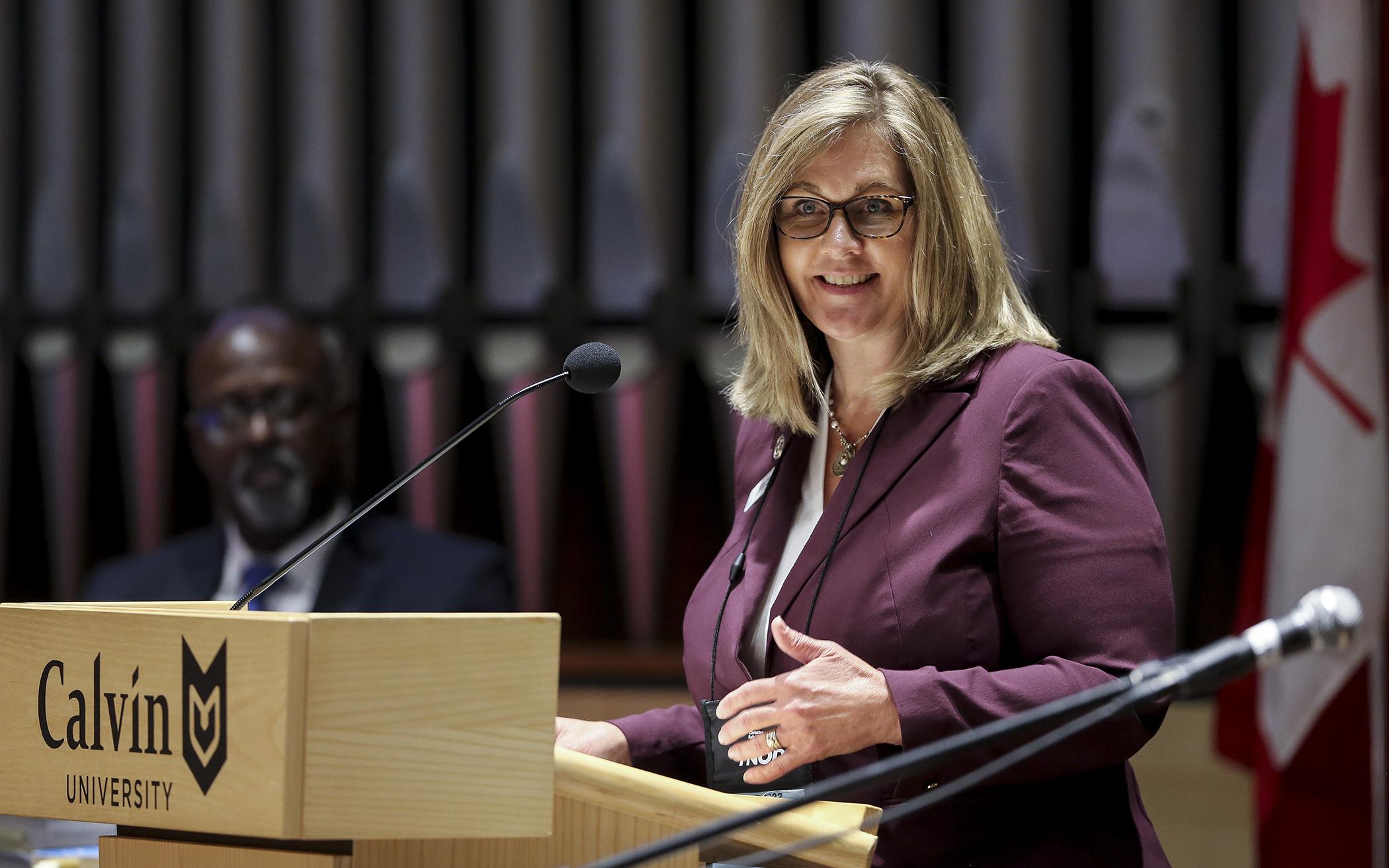Synod 2022 of the Christian Reformed Church (the general assembly) commemorated 25 years of ordaining women to church office. Not everyone was delighted.
Among those less than delighted was the delegation from Classis Minnkota, a regional body of churches located mostly in the southwest corner of Minnesota along with some scattered churches from other regions.
Classis Minnkota annually attaches a note to its delegates’ synod credentials that is read aloud at synod, noting “They wish to make clear that their protest is not against women or against using the gifts of women, but they wish to uphold their understanding of Scripture’s teaching regarding the roles of women and men.”
The classis also periodically sends a communication to synod to offer a fuller explanation of its convictions, noting that “even though Synod 1995 declared that both complementarian and egalitarian views are faithful interpretations of the Word of God, synodical practice since that time has become markedly egalitarian, making it difficult for complementarians to participate in good conscience.”
This year when the credential note was read, one of the delegates, Ingrid Beck, new to synod, was shocked and saddened.
Beck reached out to others who told her that it was within the rights of Minnkota to protest, but she believes Minnkota and the synod can do better. She told The Banner that the Minnkota statement “is aggressive in nature” and “makes my very presence objectionable.”
She suggests that Minnkota “explain the complementarian position (the idea that women and men have different and complementary roles) and take responsibility over the choice that was made to stay in the denomination.” (The Agenda for Synod 2000, starting on page 355, cites biblical-theological argumentation for both perspectives on women in the ecclesiastical office.)
She said that if voiced differently the Minnkota protest could serve as a model of giving voice to differences but not breaking unity with each other.
Roger Sparks, an 11-time Minnkota delegate to synod, might agree. Asked about the annual Minnkota protest statements, he wondered if it was time to stop the practice, noting that you still end up living with the tension between being part of something you don’t fully agree with or not being part of it. But, he said, “It allows some people who are complementarians to participate.”
Elaine May, women’s leadership developer for the office of Pastor Church Resources, said that what happened to Beck should not happen again. Women who serve at synod should be warned ahead of time about such protests and given a context in which to hear them.
“We have agreed,” May said, “to live in this tension with each other.” The problem comes when one side says we are in the right and the other side is in the wrong. Submitting to the rule of the church, she noted, means agreeing to live together with each other.
Synod 2022 is meeting at Calvin University in Grand Rapids, Mich., from June 10-16. Find daily coverage from The Banner news team at thebanner.org/synod, download the Banner app on your mobile device, or follow The Banner Magazine on Facebook. On Twitter follow #crcsynod or twitter.com/crcna. Synod is the annual general assembly of the Christian Reformed Church (it did not gather in 2020 or 2021). Connect to the meeting’s livestream, read advisory committee reports, and find other resources at crcna.org/synod.
About the Author
Clayton Libolt was the long time pastor of River Terrace Church in East Lansing, Mich. Since his retirement, he has served in a variety of interim positions. He is presently serving as the interim senior pastor of Sonlight Community CRC in Lynden, Wash.









